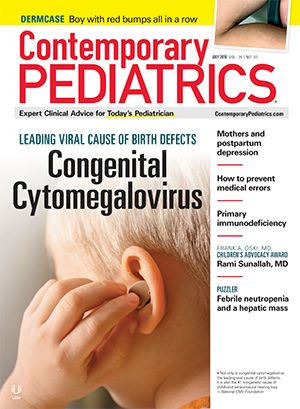How long are new mothers at risk for postpartum depression?
New mothers may develop postpartum depression (PPD) at any time during the first year after giving birth, an analysis of monthly depression screening data showed. Furthermore, the highest rate of positive screens-23%-was at 12 months postpartum.
New mothers may develop postpartum depression (PPD) at any time during the first year after giving birth, an analysis of monthly depression screening data showed. Furthermore, the highest rate of positive screens-23%-was at 12 months postpartum.
Investigators screened 152 new mothers for PPD every month for a year after they gave birth using the 10-question Center for Epidemiological Studies Depression Scale (CES-D-10). During the study period, 49% of participants had a positive PPD screen during at least 1 month. Of those who screened positive, 17% had their first positive screen at 1 month, 8% at 2 months, and 6% at 6 months. An additional 9% of mothers had their first positive screen after 6 months.
In other words, 15% of those new mothers who screened positive did not do so until 6 to 12 months postpartum. Analysis also showed that living in a household earning $50,000 or less and having a limited education increase the risk of a positive PPD (McKean M, et al. Clin Pediatr (Phila). 2018;57[6]:689-693).
Thoughts from Dr. Burke
The American Academy of Pediatrics recommends screening mothers for PPD at their child’s visits in the first 6 months of life. This study suggests that continuing beyond that date may be helpful. I am always struck by the thought of how many more times a mother is likely to see her child’s doctor than her own doctor in the year after giving birth. Pediatricians can be an important link to mental healthcare for mothers suffering with PPD.
